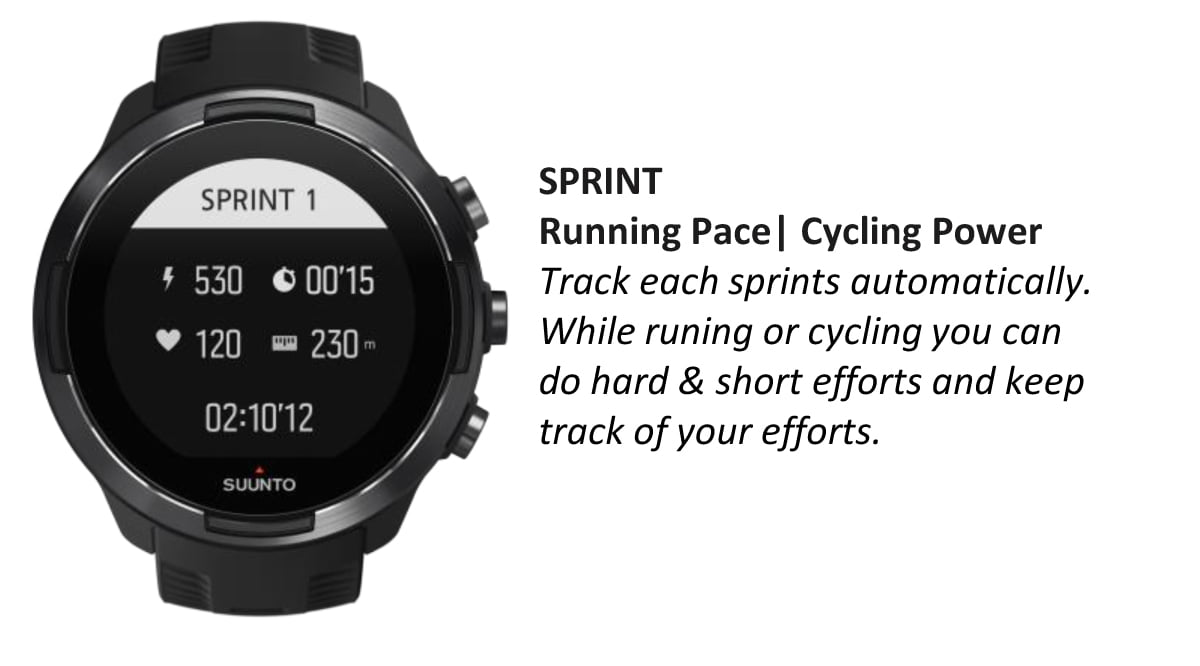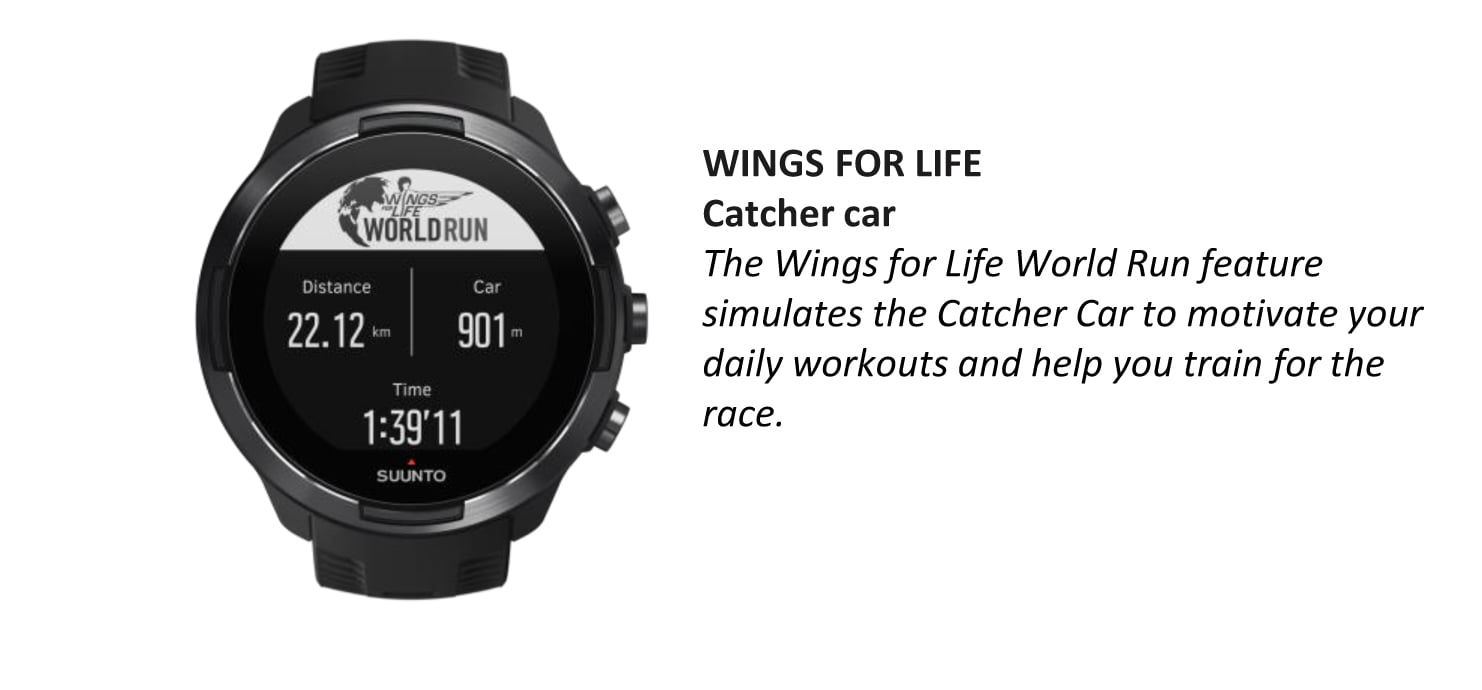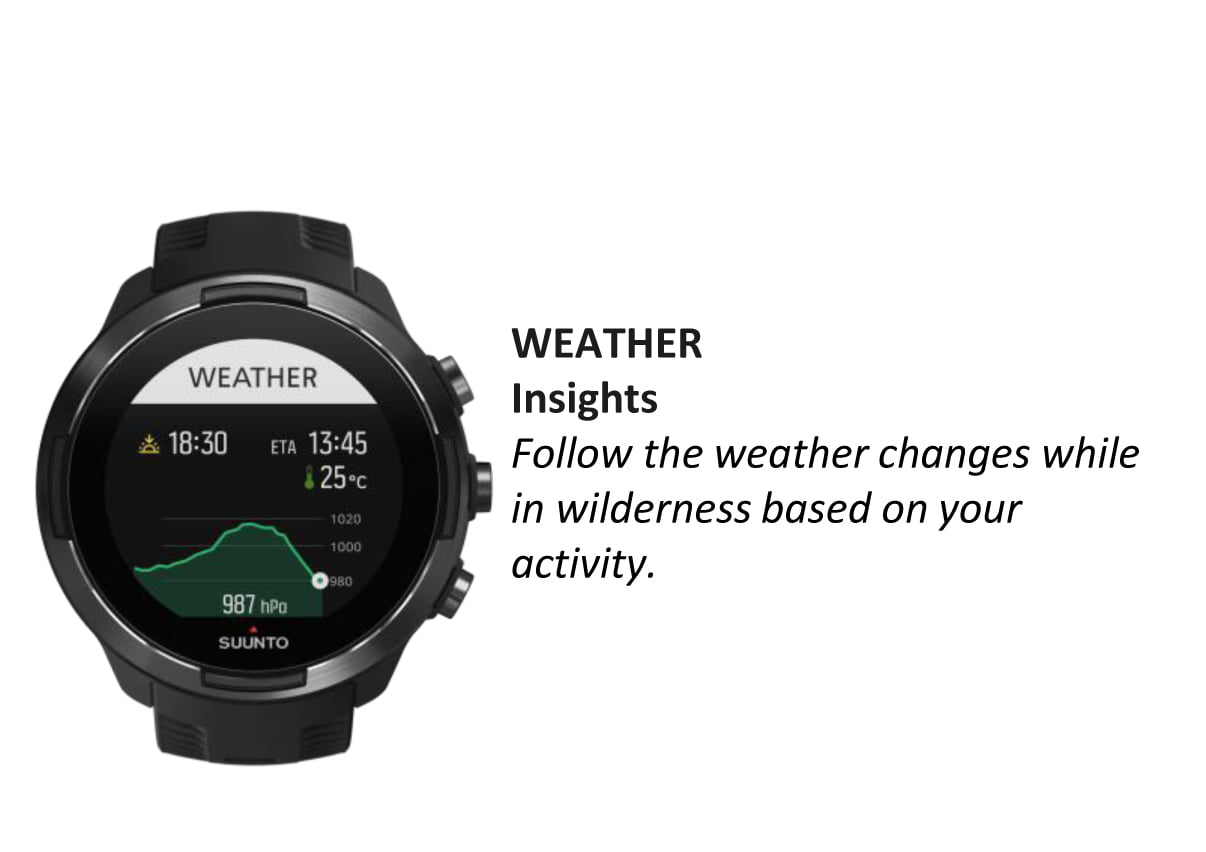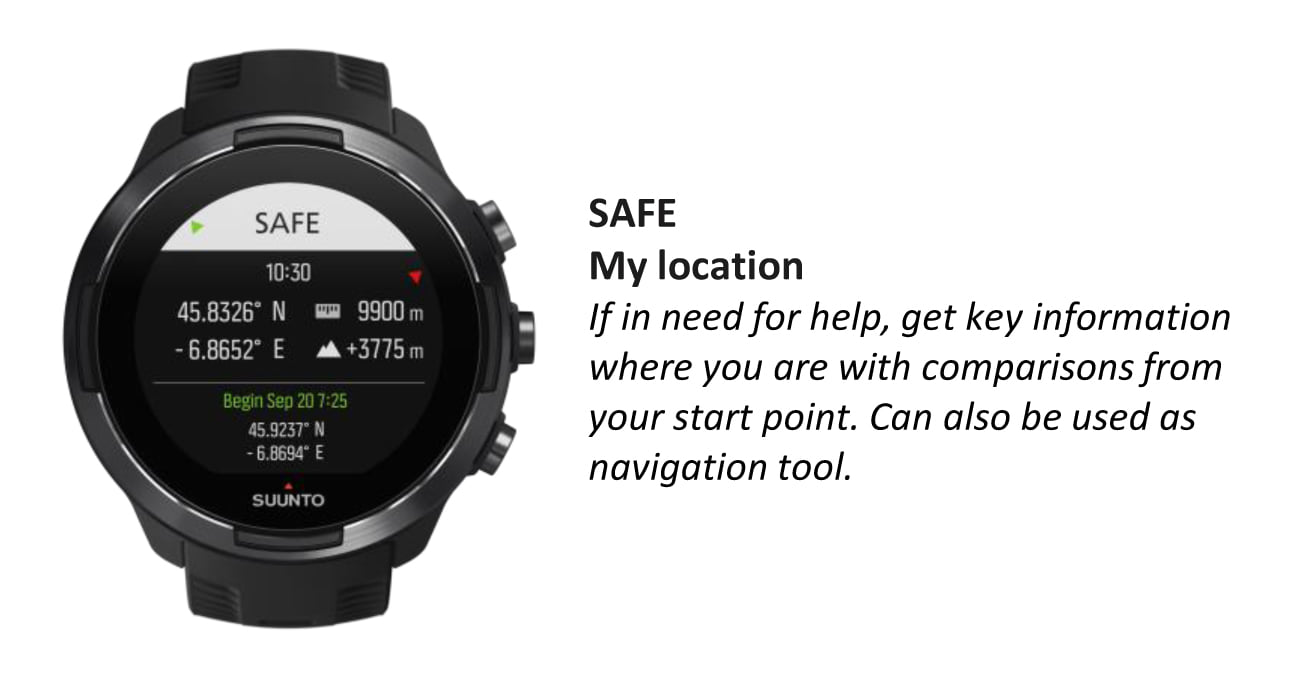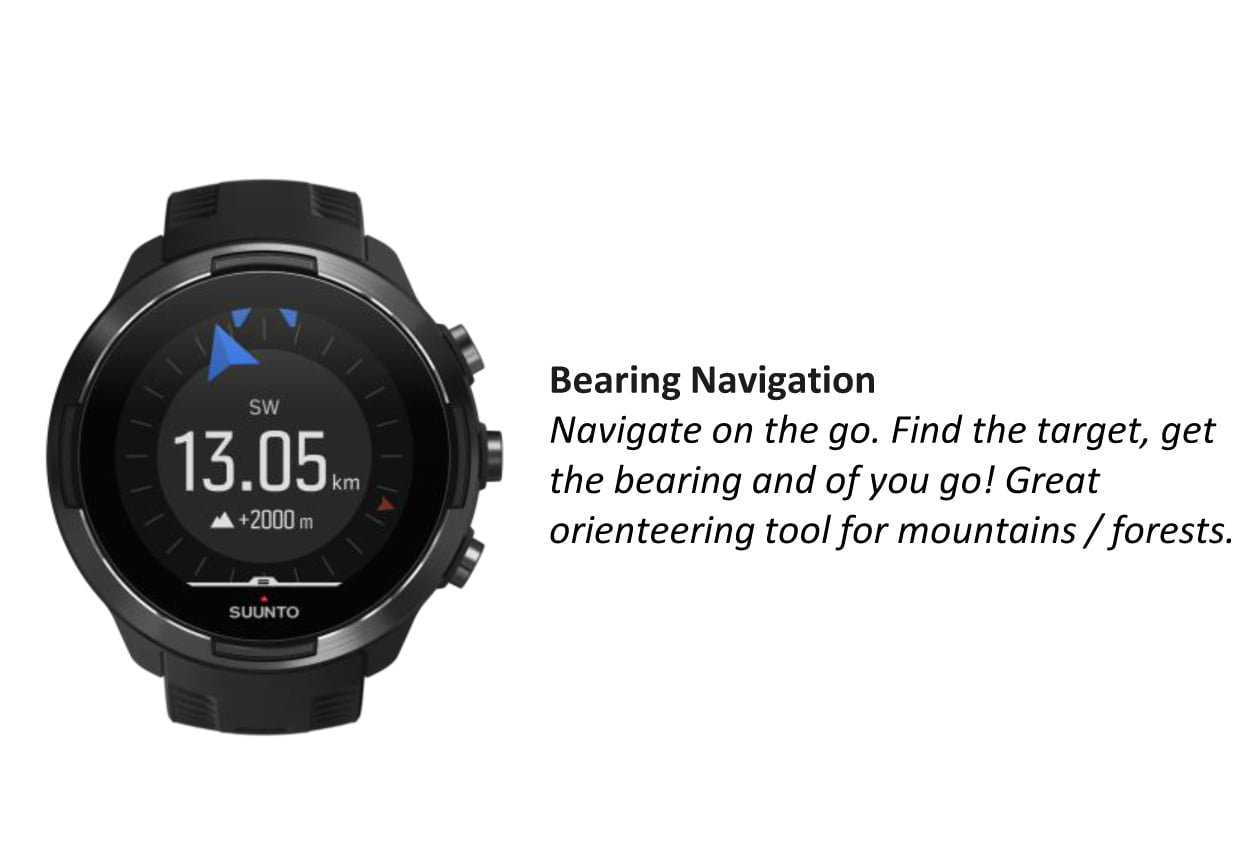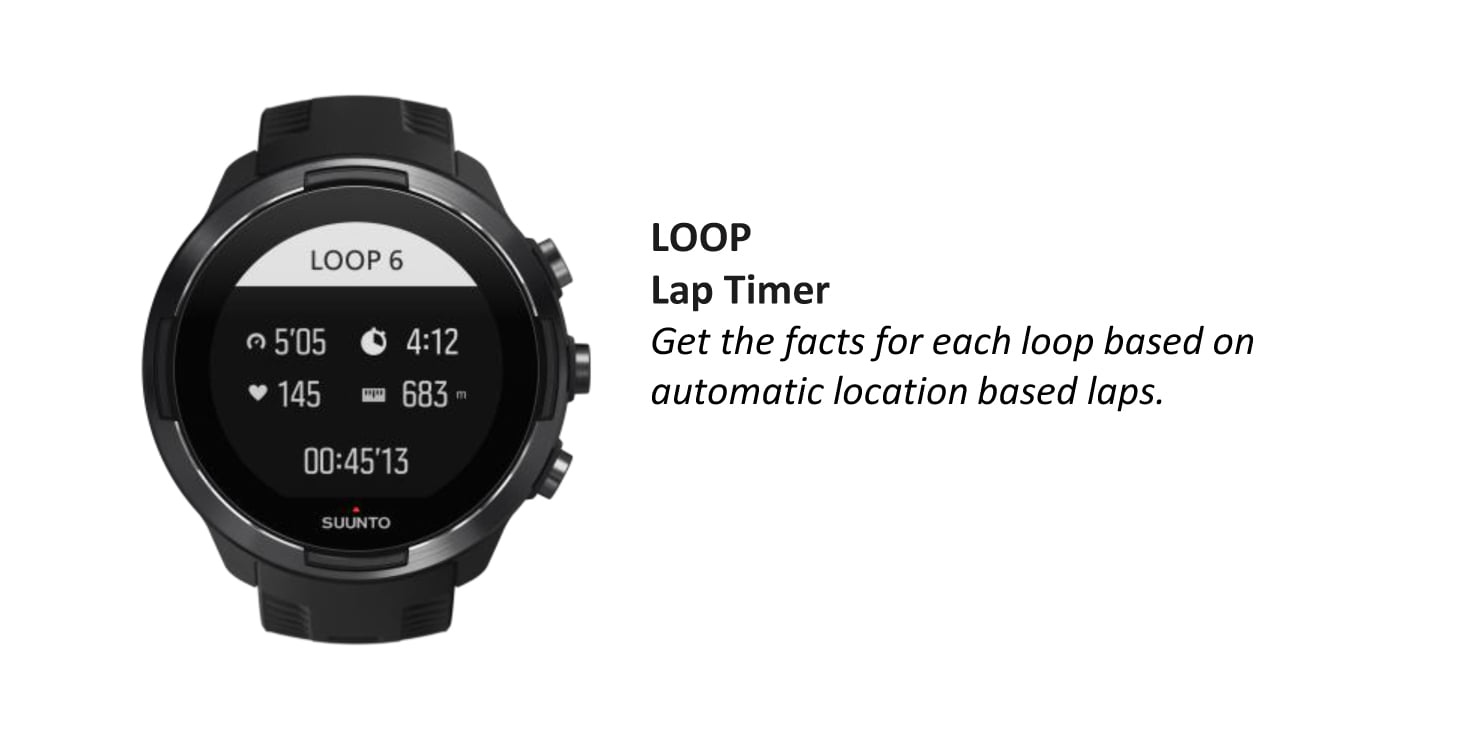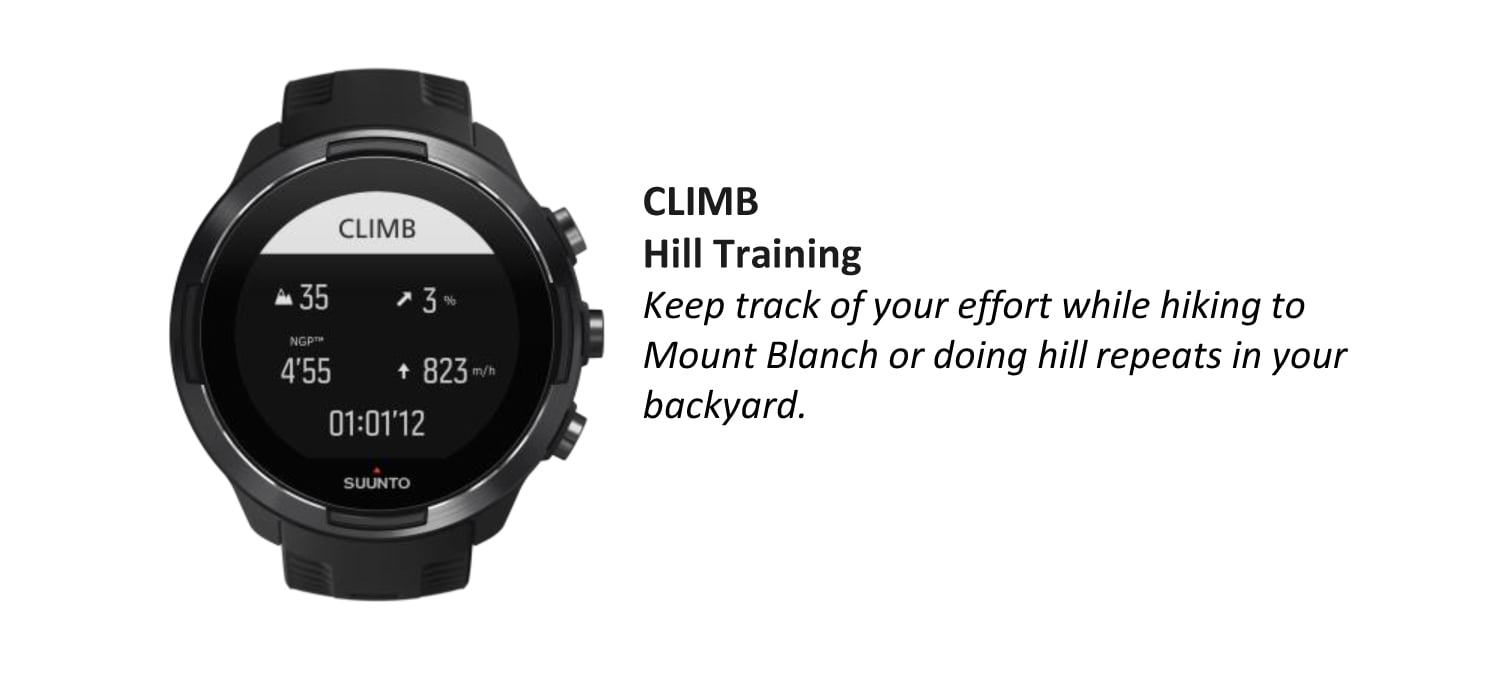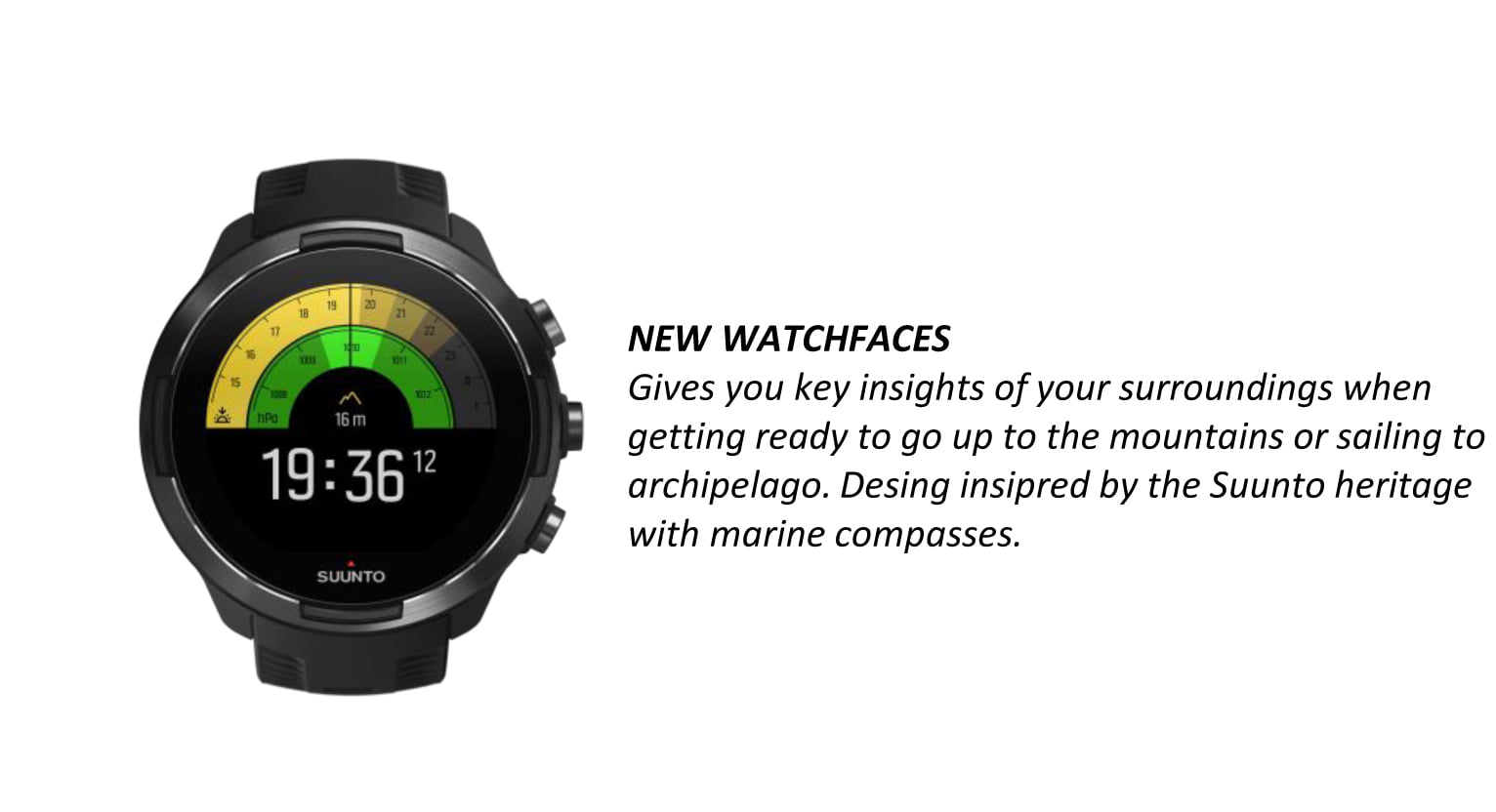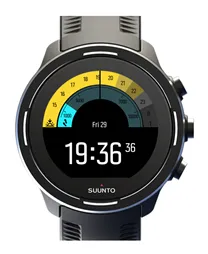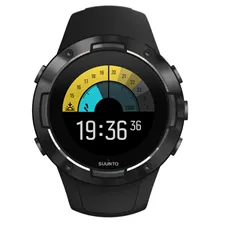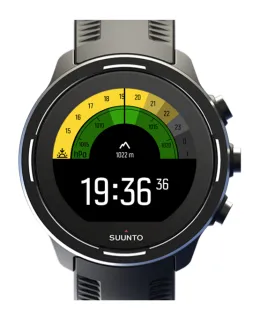Software update 2.12.30 Staged Release for S3/S5/S9
-
@Efejota I suppose (and this is such a kludge) …
You could work out your desired destination’s bearing from the map, somewhere with an outdoor view. Sight and note the most distant identifiable point on the bearing and duplicate the process with the watch, locking in the arrow (& adding distance/elevation to taste). The reverse of actual compass navigation.
Or (even worse but possible in-tent) move the watch to line up its 12-6 axis with the compass plate/sight axis while the latter sits in the appropriate position on the map (as you would use it to find the bearing and maybe measure distance).
Make your angular error margins big, make 'em early.
-
@Dimitrios-Kanellopoulos, @Fenr1r will like this information
-
@Fenr1r you are right. But the possibility to see bearing in degrees rather than just pointing to a direction will lessen the possibility of angular error. Maybe I am mistaken, but I did not see that possibility in my first test with the feature.
-
@Efejota Exactly. Sorry: that last line was meant to be an ironic coda to the “kludge” stuff. I am not genuinely keen on angular errors, big or small.
Viva Integers!
-
@Fenr1r how about errors that need user input all the time. I think that costs more.
See
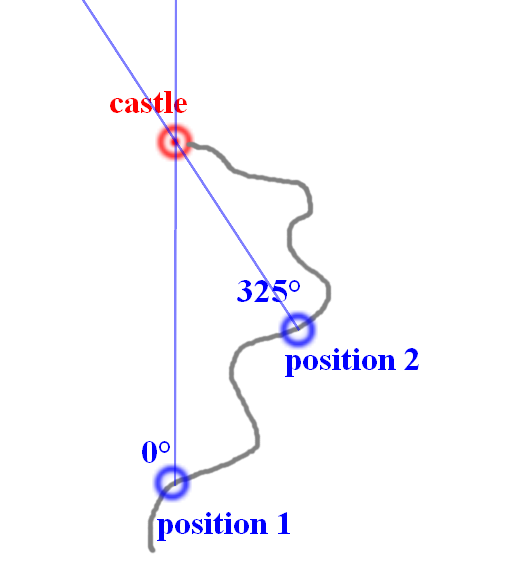
Its very easy to make a user input error for Angle Imo but I might be wrong.
You could change the bearing to the Castle 2 times quite easy though. Right ?
I like this discussion

-
@Dimitrios-Kanellopoulos Depends on the purpose of your bearings. In your (excellently impromptu) pic, am I heading for that castle or just using it as a reference point to locate myself on its road? And what is the currency of this “cost”? Stopped time? Effort? Irritation?
I use bearings where there aren’t usable paths going where I want to go in the way I want to go. If I’m walking to that castle, there would be no 325d bearing for me because I’d either be walking North from pos1 or along that road. And probably not either, as castles are the known haunts of depraved aristocrats, many of whom are vampires.
Elsewhere, course correction can be constant. It’s why you check the terrain folds for their potential to obstruct real world features on your bearing. Assuming you can see anything. Fog, forests and night are not helpful in this regard.
(You know how you avoid those angular/sighting errors requiring repeated user input to reach a mapped feature? Coordinate entry. But who would put such a thing on a watch?)
That was long. I like this discussion too.
-
@Fenr1r That is right.
How do I see the POIs use for navigation and how the absence of coordinates entry into the watch might be overcome?
My intended use (thankfully, I NEEDED it just a few times) is to be sure to find a certain point when I cannot navigate just with ground references (fog, forest, whatever). Also, in my A3P times, to have a clue on how far I where (I know, very basic, nothing compared to route ETE in S9B).
Let’s use the castle. I have it as a POI, then I can “reach” it if I can navigate to that point if I lost the road or if there is no road at all. Fog, night and wolfs are added components. Vampires come next. Coordinates is the best method.
If I cannot enter the castle coordinates, my only possible way is (if I know where I am in the map, of course), to get the bearing in degrees and an (approximate) distance and enter it using the new feature in navigation. A worse alternative, of course, but at least a possibility, similar to traditional compass navigation. I will need to check from time to time and it is very prone to error, but it is the best I can imagine if I cannot enter coordinates.
Here comes the conclusion. As most of the times I think of this feature for cases where my visibility of the destination is null (why should I need navigation if I have direct eye contact with my intended point), not knowing the bearing in degrees when locking the compass makes the alternative almost useless.
To be honest, what could the current implementation be useful for? I guess that there may be scenarios, but probably in sports that I do not practice.
I like the direction of Suunto with the firmware, but I still see that it has lost lot of its traditional ties with navigation.
And I like the discussion too
-
@Fenr1r @Dimitrios-Kanellopoulos @Efejota
I would like to clarify the original idea behind the picture (it’s mine in fact
 )
)  This is the situation where the current bearing functionality will not help much unless you know the distance to the castle… But, via @Dimitrios-Kanellopoulos I yesterday suggested to Suunto guys adding a “triangulation” feature: you measure bearing to the castle from position 1, then you measure bearing from position 2 and the watch calculates the coordinates of the castle based on the intersection of 2 bearings
This is the situation where the current bearing functionality will not help much unless you know the distance to the castle… But, via @Dimitrios-Kanellopoulos I yesterday suggested to Suunto guys adding a “triangulation” feature: you measure bearing to the castle from position 1, then you measure bearing from position 2 and the watch calculates the coordinates of the castle based on the intersection of 2 bearings 
-
@inkognito Very smart! In my opinion (I know nothing of programming, I must confess), easier to get coordinates and enter them directly. But, of course, it is very helpful if you do not know coordinates (like having a plain paper map)
-
@Efejota said in Software update 2.12.30 Staged Release for S3/S5/S9:
I am very happy with the update. I would like to share a couple of thoughts, maybe @Dimitrios-Kanellopoulos have information on them
Additionally, I tried it today and discovered that I had to point the direction. It makes it useless unless you have a direct sight of the point. It could be a good alternative for POIs if we could see the bearing in degrees. Then we could fix the point in a map (paper or phone), find the bearing and distance, and put it into the watch.
Sorry, i don’t get this point. Yes, you need to point, but at the same time you get the bearing displayed in degrees. So you can do the pointing in the fog or in the tent - as long as you know your desired bearing, just point the watch until the number is what you want.
![IMG_1223-scaled[1].jpg](/assets/uploads/files/1599653940837-img_1223-scaled-1.jpg)
-
@Efejota said in Software update 2.12.30 Staged Release for S3/S5/S9:
Fog, night and wolfs
Where wolfs?
-
@Fenr1r near the castle 51° SE (reverse bearing of the tent from the castle = SE 51°) . Please follow with attention

-
@inkognito (& @Efejota) Interesting. And fine (uncredited-as-initially-displayed-the-shame) map. How would you then use those one-time generated coordinates? Would you be doing this with sequential major features along your route JIC the road became impassable?
If the watch can hold onto a first bearing, without needing to overwrite it with the second, I’d quite like it to be able to save that first bearing … and entered distance … and maybe elevation … maybe with an icon … and a name …
-
@chrisc92 said in Software update 2.12.30 Staged Release for S3/S5/S9:
@Fenr1r near the castle 51° SE (reverse bearing of the tent from the castle = SE 51°) . Please follow with attention

could you share coordinates to avoid visit this area
 ?
? -
@Mff73 Not on any map, apparently - so no coordinates. And the satellite image resolution of the region seems to be measurable in kilometres. I asked a Cure fan of my acquaintance and she told me it’s in the wooded hills above the small village of Dontgonearthe.
-
@Egika Hell! You are absolutely right! I started a whole useless discussion! I missed the degrees bearing… Another reasons for asking for bigger fonts for people over 50

-
@Efejota said in Software update 2.12.30 Staged Release for S3/S5/S9:
Another reasons for asking for bigger fonts for people over 50
Preach.
-
@Fenr1r When it comes to priorities, I would suggest to Suunto something like this:
- Implement the functionality to create POI with given GPS coordinates and elevation straight from the watch… Come on, this is a must!

- When it comes to the current bearing functionality, if you enter distance (and possibly also the elevation), allow us to save that projected point as POI…
- When you use the current bearing functionality without entering the distance, show the ray/line representing that bearing from the position of measurement in the navigation screen… This would come extremely handy if you go zig-zag in the forrest etc…
- If all that is implemented, now it’s a time to possibly implement crazy ideas like mine with the POI creation based on bearing from two different places

- Implement the functionality to create POI with given GPS coordinates and elevation straight from the watch… Come on, this is a must!
-
Some feedback about the baro dial on the watch face:
The idea to color the scale light green to show the min/max value is great! The dial however shows about 5 hPa over the full scale. I noticed the min/max values are from a 12hr period. In this period it is not very uncommon that the pressure rises or drops more then 5 hPa. This means that I only see around 2,5 hPa lightgreen and the rest exceeds the scale. This gives me no idea how fast the pressure is changeing.
I would propose to extend the scale to at least 10-15 hPa or a dynamic scale and the direction towards it is moving.
Some pictures to (hopefuly) clarify the text above.
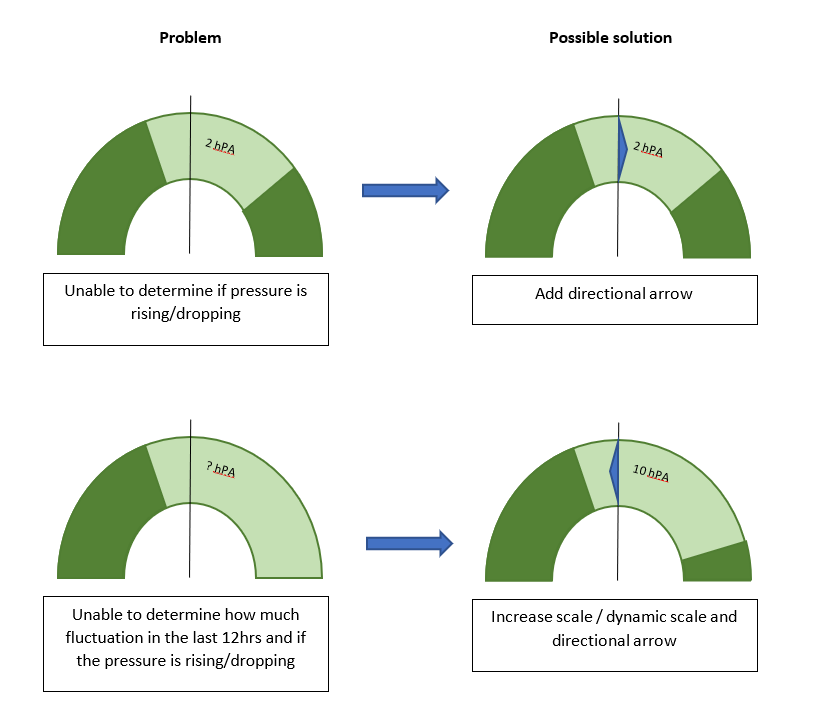
-
@inkognito I heartily agree with the sense and obvious profitability of those suggestions (might even have suggested the first 2 a while back). However, your no.3 has me reassessing your no.4. And your motives. Are you planning to steal something from this hitherto unknown castle, approaching as close as possible to a pre-identified line of unobserved ground, followed by helicopter extraction? And is there a sport mode for that?
